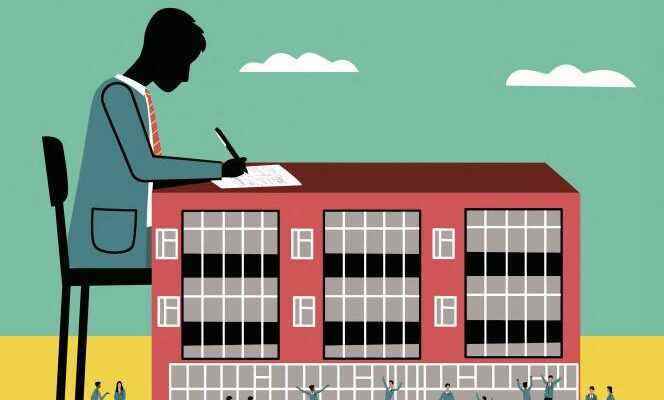The exams follow one another and the ailments that precede them are often the same. To guard against anxiety, stress or insomnia before the start of the philosophy and French exams on June 15 and 16, three experts are giving high school students some tips. Among these tips: sleep more, eat better and continue the sport.
Distinguishing between stimulating and inhibiting stress
First, let’s set the framework: stress is not intrinsically a harmful state. Hormonally, it is characterized by the secretion of adrenaline and noradrenaline, which, as stated by the sophrologist and health journalist Isabelle Frenay “allow you to get started, gain momentum and, ultimately, mobilize all your skills”. “Where it becomes counterproductive is when you are faced with crippling stress”adds the one who is also the author of the book When slowing down becomes vital (First, 2021). This inhibiting stress can be temporary. There is also a chronic form, a state where anxiety will lead to a phenomenon of generalized exhaustion.
In addition to the pressure created by this special deadline, sleep specialists note that physiological mechanisms lead young people to go to bed a little later than usual. “At this age, we observe a later falling asleep linked to the delay in the cooling of the body”describes Mireille Barreau, sophrologist and author of the book destination sleep (Mardaga, 2021). Add to that the use of screens in the evening, you will have a cocktail of factors harmful to sleep.
Sleep, an ally of concentration and memorization
However, the role of the latter, especially during the exam period, is essential. When we sleep, the part of the brain called the hippocampus selects the information to remember. “But if you are sleep deprived, your ability to memorize will suffer very quickly”warns Alexandra Gros, doctor of neuroscience. “Restricting your sleep time is restricting your ability to learn”, summarizes Mireille Barreau. To best limit the anxiety generated by exams of all kinds, it is better to sleep more and go to bed early.
“The first medicine remains a balanced dietstates Isabelle Frenay. Reserve a place of choice for fruits, vegetables, animal and/or vegetable proteins. Slow sugars (rice, pasta – depending on how they are cooked – oatmeal or quinoa) eaten throughout the day help to avoid blood sugar peaks and contribute to the proper functioning of the body, even at night. “Certain “repairs” offered by sleep require energy made possible by these slow sugars”, says Mireille Barreau. Drinking enough – between 1.5 and 2 liters of water a day – is also not superfluous to be in good shape.
Sport, micronaps and breathing exercises
Even in the absence of sleep deficiency, but all the more so if it exists, micronaps allow you to sharpen your concentration. For their duration, count between fifteen and twenty minutes. According to Mireille Barreau, in addition to alleviating potential fatigue, these will increase efficiency for the rest of the day. The perfect time to lie down momentarily on your bed, the beginning of the afternoon. “This hour corresponds to a slowdown for the body”, explains Isabelle Frenay, before adding: “It is for this reason that all meetings at 2 p.m. are counter-productive! »
Running, individual or collective sport are all good practices for limiting “bad stress”, relieving tension and sleeping well. But going about it too late in the day, after 7 p.m., can however “slow down the cooling of the body”, explains Mireille Barreau. In the evening, avoid screens diffusing blue light, which reminds our body of daylight and delays the secretion of melatonin, the sleep hormone. The Institute of Sleep and Vigilance recommends getting rid of it at least an hour and a half before going to bed.
Breathing exercises are all useful keys for falling asleep and lowering the level of stress. For this last objective, Mireille Barreau recommends the rhythm “five/five” : inhale for five seconds and release the air for the same duration. Same exercise to promote sleep, this time with a variation: inhale for four seconds and exhale for six. Repeat these cycles for five minutes. With training, the exercise time can be reduced to two minutes.
The virtue of “disturbing dreams”
Sleeping less well the day before an important issue such as the baccalaureate is not incongruous, especially since “disturbing dreams” sometimes come into play a few days before such a deadline. The work of the Finnish neuroscientist Antti Revonsuo also affirms that dreams have the particular virtue of exposing us in anticipation to difficult events, even failures. “Faced with a similar situation in reality, we will be able to live the moment more calmly and develop an effective strategy”, explains Mireille Barreau.
